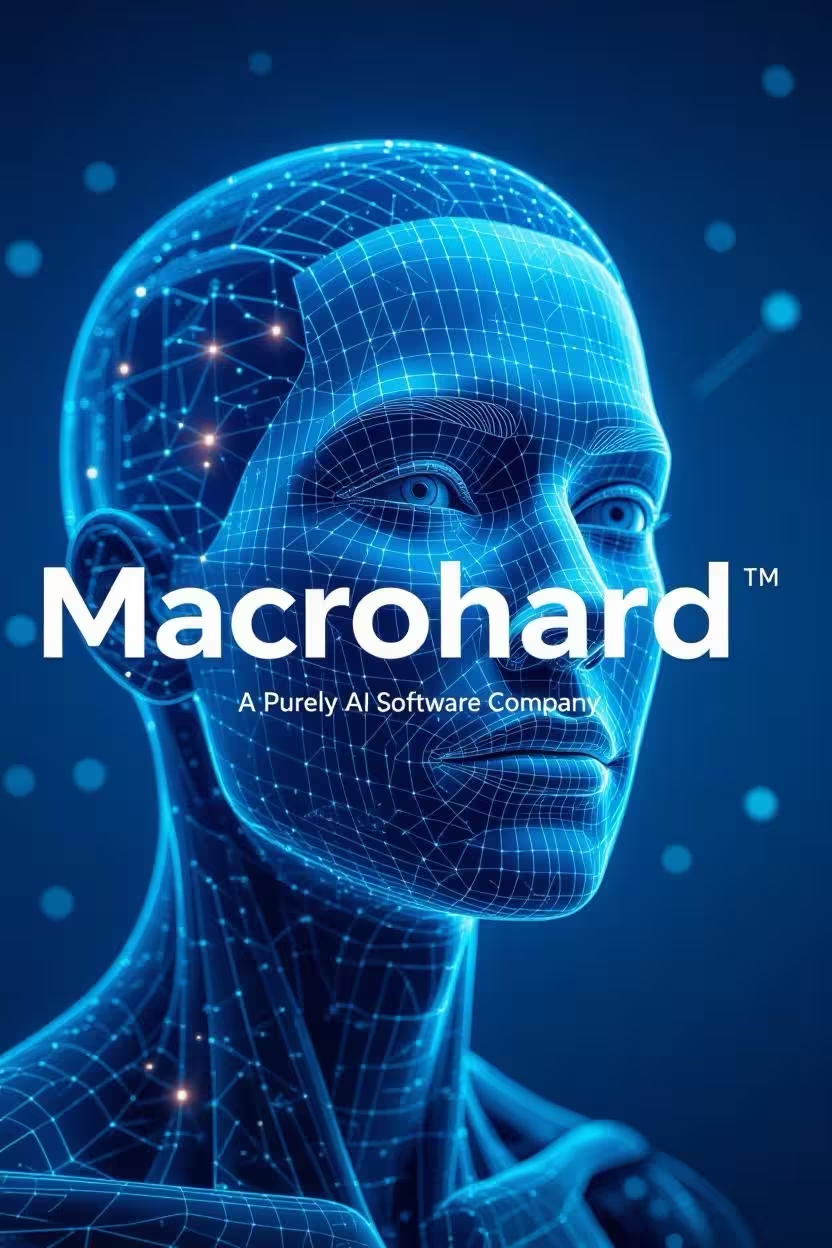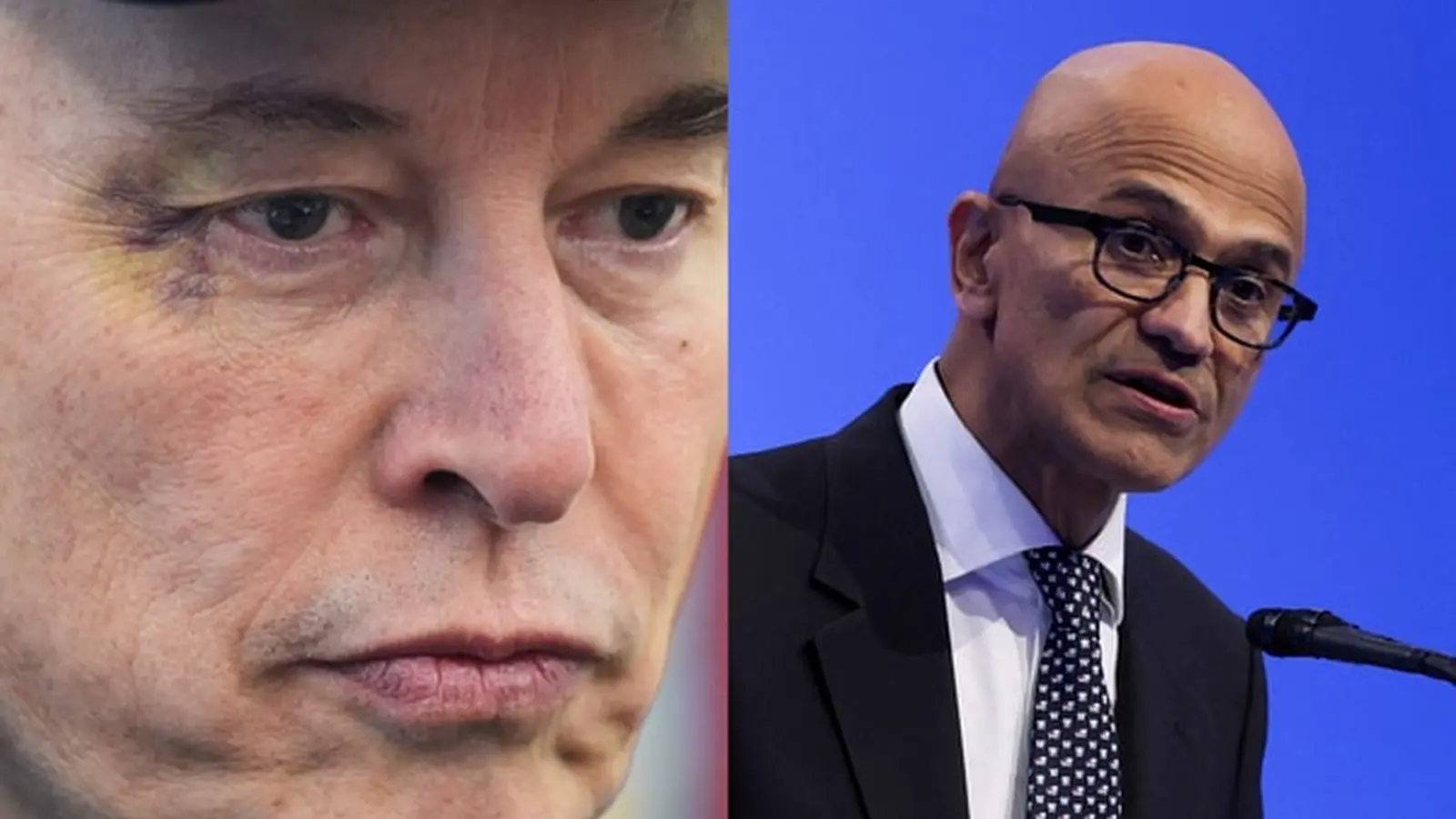5 Minutes
Elon Musk unveils Macrohard — an AI company aimed at simulating Microsoft’s software ecosystem
Tesla and xAI founder Elon Musk announced a new company called Macrohard that he says will attempt to replicate Microsoft’s software business using artificial intelligence. In a post on X confirming the new venture, Musk wrote, “It’s a tongue-in-cheek name, but the project is very real!” and added that, because major software companies do not manufacture physical hardware, “it should be possible to simulate them entirely with AI.”
Elon Musk is starting a new AI company to take on Microsoft(AP/Reuters)
Patent filing reveals planned AI services and capabilities
Media reports show that xAI filed a trademark/patent application for the name Macrohard with the United States Patent and Trademark Office (USPTO) on August 1. The filing outlines a portfolio of AI-driven offerings, including downloadable software for synthetic human speech and text generation, and tools powered by generative AI for designing, coding, running, and even playing video games. These descriptions suggest Macrohard will focus on generative AI, speech synthesis, developer tooling, and automated game development workflows.
How Macrohard’s approach could work
According to Musk’s earlier X posts, the new project envisions “hundreds of specialized coding and image/video generation/understanding agents all working together,” with systems that emulate human interactions inside virtual machines until the outputs meet high-quality standards. The proposed architecture emphasizes agent-based collaboration, model orchestration, and heavy use of virtualized test environments to iterate quickly on software and user experience.

Product features to expect
- Generative AI for text and speech: advanced natural language generation and neural speech synthesis for assistants and content creation.
- Automated coding agents: AI-driven coding, debugging, and continuous integration workflows to speed software development.
- Game dev and runtime AI: tools for designing, coding, running, and playing games using procedural content generation and AI-driven testing.
- Emulation and virtual QA: virtual machines and human-emulation modules that stress-test interfaces and workflows automatically.
- Agent orchestration: multiple specialized AI agents collaborating to solve complex engineering and creative tasks.
Macrohard vs Microsoft — comparison and market implications
Macrohard’s core proposition — emulating an entire software company through AI — is fundamentally different from Microsoft’s traditional software development and product integration model. Microsoft builds and licenses software, integrates with hardware partners, and operates large cloud infrastructure (Azure) to deliver services like Copilot across Windows, Office, and GitHub. In contrast, Macrohard would attempt an AI-native, highly automated route focused on rapid generation and iteration of software artifacts.
Advantages
- Faster prototyping: agent-driven workflows could compress development timelines.
- Cost efficiency: automated code and content generation may reduce manual engineering effort.
- Scalable creativity: generative AI can produce diverse UX, content, and game scenarios at scale.
Risks and challenges
- Quality and safety: ensuring outputs meet enterprise-grade reliability and security standards.
- Legal and IP concerns: emulating existing products raises intellectual property and antitrust scrutiny.
- Integration gaps: replicating Microsoft’s ecosystem, enterprise contracts, and cloud relationships is nontrivial.
Use cases and target customers
Potential use cases for Macrohard’s AI suite include developer productivity (coding assistants and automated testing), content and speech generation for virtual agents, accelerated game development pipelines, AI-driven QA and emulation for enterprise software, and research platforms for multi-agent AI orchestration. Enterprises, game studios, cloud-native developers, and AI research labs could all be potential customers if Macrohard delivers robust APIs and integration with cloud providers.
Context: Musk, Microsoft, OpenAI and the wider AI market
Musk’s relationship with Microsoft and CEO Satya Nadella has been mixed. He has involved Microsoft in legal disputes tied to OpenAI and has publicly sparred about industry direction, while also engaging in dialogue when xAI models (such as Grok 3) were made available on Microsoft Azure. Musk has been promoting Grok as a competitive model family — claiming Grok 4’s superiority and teasing Grok 5 — even as Microsoft continues to rely heavily on OpenAI’s models to power Copilot features across web, GitHub, and Windows.
Market relevance and outlook
Macrohard’s announcement signals growing ambition among AI-native startups to challenge legacy software incumbents. If Macrohard can combine advanced large language models, agent orchestration, and robust virtual testing to deliver enterprise-grade products, it could reshape developer tooling and digital content pipelines. But execution, regulatory scrutiny, and ecosystem partnerships will determine whether Macrohard becomes a disruptive alternative or an experimental complement to existing platforms like Azure and Copilot.
Source: livemint


Leave a Comment